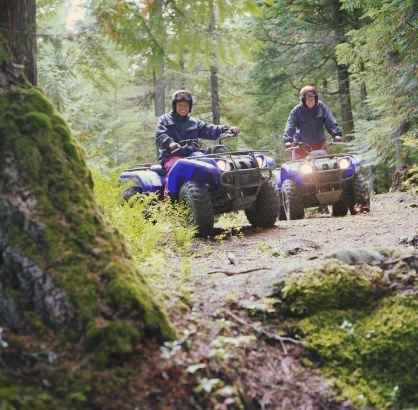The B.C. Conservation Officer Service has assigned an auxiliary officer to the Omineca region to step up enforcement of the provincial government's off-road vehicle regulations.
The officer is one of eight added to the roster across the province, B.C. Conservation Officer Service deputy chief Chris Doyle said during a teleconference with provincial media this week. They'll go through training over the next two months before taking to the field in September. They'll work until January and resume duties in spring 2017.
New off-road vehicle regulations came into effect in November.
Owners of all-terrain vehicles, side-by-sides, dirt bikes and other types of off-road vehicles are required to register their ORVs at an ICBC broker before they can be used on Crown land, including resource roads.
Riders must also wear helmets, use the vehicle's seat belts if they've been installed by the manufacturer and carry identification to help officers better identify reckless riders and establish their age.
Other measures include requiring ORVs to be equipped with both headlights and taillights that can be used during the day when visibility is poor and when it's dark out - beginning 30 minutes after sunset and ending 30 minutes before sunrise. Temporary lights can be used if lights have not been installed on an ORV by the manufacturer.
And youth, 16 years and younger, riding on Crown land must be supervised and riding an appropriately-sized ORV.
Doyle said the auxiliaries will also work on education initiatives related to ORVs and they will help full-time conservation officers with their duties, including responding to human-wildlife conflicts.
Doyle also highlighted an incident in the Okanagan where conservation officers issued tickets to five riders for allegedly riding in a sensitive alpine area near the top of Little White Mountain. The tickets carried fines ranging from $230 to $575.



